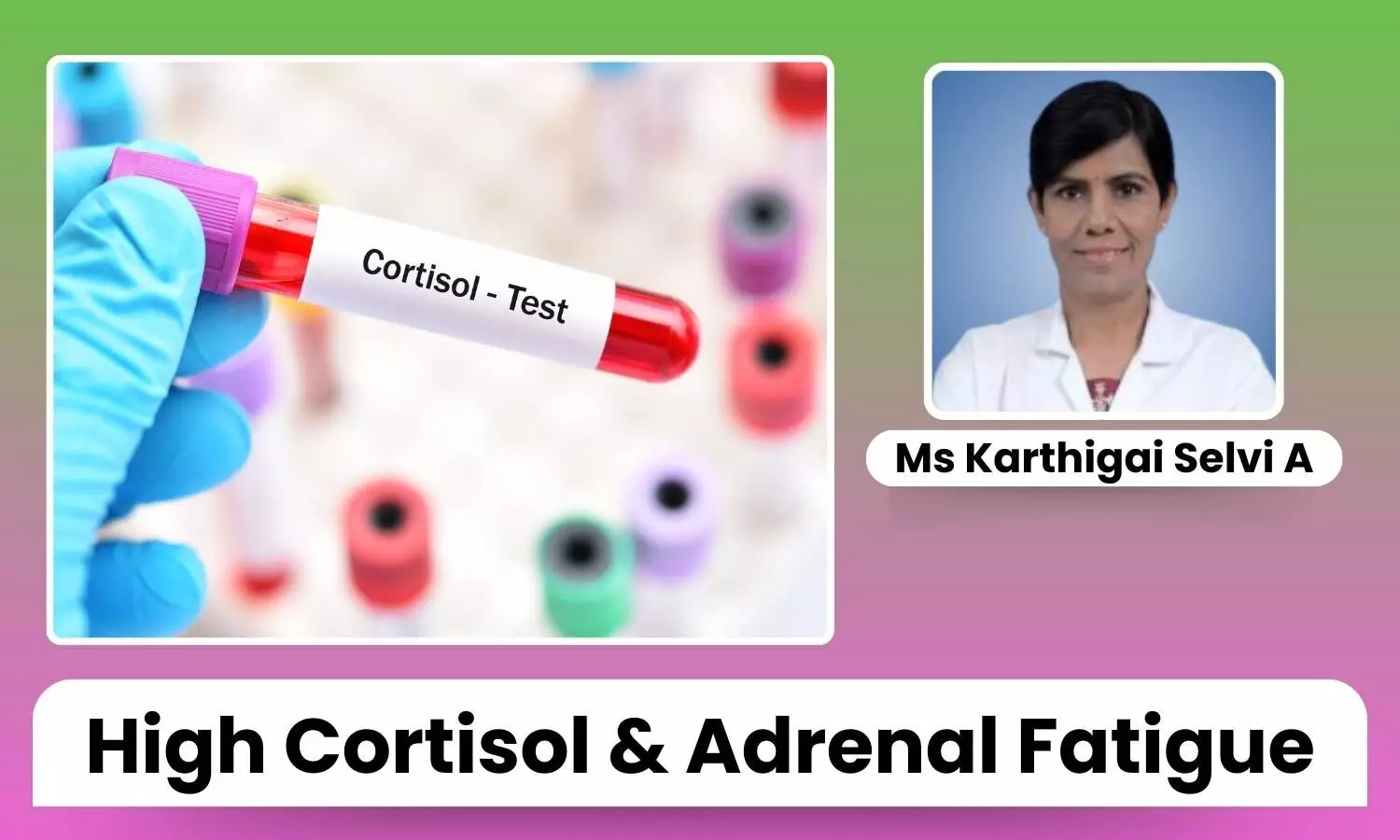Burnout Epidemic: Is High Cortisol Driving Your Body to Adrenal Fatigue? - Ms Karthigai Selvi A

You wake up exhausted, even after a full night's sleep. Caffeine feels like your only lifeline. Your patience is wearing thin, your motivation is shattered, and you seem to catch colds all the time. Sounds familiar?
If so, your body may be transmitting distress signals. Chronic stress is more than simply an emotional burden; it also has a physiological impact on your adrenal glands.
What's the Deal with Cortisol?
The adrenal glands produce cortisol, also known as the "stress hormone," which regulates metabolism, blood sugar, and immunological function. It's also the body's internal alarm system. In a crisis, cortisol levels rise, giving you the energy to fight or flee. What's the problem? In today's high-pressure world, many of us are always in crisis mode.
Work pressures, financial stress, social media comparisons, and personal challenges keep our cortisol levels high for far longer than nature intended. When this goes unchecked, your adrenal glands struggle to keep up, resulting in "adrenal fatigue."
Is Adrenal Fatigue a Real Thing?
Adrenal fatigue is not a medically recognized disorder, but its symptoms are quite real. Many clinicians refer to it as HPA axis dysfunction, which is a breakdown in communication between the brain and adrenal glands.
Chronic stress can disrupt cortisol production over time, resulting in either high or low cortisol levels. What was the result? Constant weariness, cognitive fog, weight gain (particularly around the abdomen), sugar cravings, mood swings, and frequent infections.
How to Tell If Your Cortisol Is Out of Control?
If you are experiencing chronic stress, your body may be sending you a warning signal. Here are several symptoms that your cortisol levels could be off:
Symptoms may include exhaustion, cravings for caffeine or sugar, irritability, digestive issues, frequent colds or infections, and weight gain, particularly around the midsection.
If these seem like your daily reality, it's time to examine how you handle stress.
How to Reduce Cortisol and Prevent Burnout?
What is the good news?
With a few easy but effective lifestyle modifications, you can reverse the effects of chronic stress and improve adrenal health.
1. Prioritize Sleep (Really!)
One of the most common causes of cortisol imbalance is a lack of sleep. Aim to get 7-9 hours of decent sleep per night. Try reducing the lights an hour before bed, avoiding electronics, and sticking to a regular bedtime.
2. Reduce Caffeine and Sugar
Both caffeine and sugar raise cortisol levels, resulting in a vicious cycle of energy crashes and cravings. Swap coffee for green tea or herbal alternatives, and choose nutritious meals over packaged snacks.
3. Move but don't overdo it
Exercise helps control cortisol, but intensive exercises can be counterproductive if you're already exhausted. If you're energized but weary, go from high-intensity workouts to yoga, walking, or light strength training.
4. Learn to Say No
Trying to please others might lead to burnout. If your schedule is overwhelming, start setting boundaries. Your body and mind will appreciate you.
5. Practice Mindfulness and Relaxation
Meditation, deep breathing, or even five minutes of silence can help reset your stress response. Apps such as Headspace and Calm can be excellent beginning places.
6. Provide Your Body with the Proper Nutrients
A diet high in B vitamins, magnesium, and omega-3 fatty acids can improve adrenal health.
If you're always exhausted, moody, or simply "off," don't dismiss it. Chronic stress is more than simply a nuisance; it poses a significant health risk. The sooner you take efforts to reduce cortisol and maintain adrenal health, the better your body will perform in the long term.
Your body is intended to cope with stress, but it is not supposed to stay in survival mode all the time. The actual solution for burnout is not another cup of coffee; it is knowing how to slow down, set boundaries, and provide your body with the rest and food it requires.


